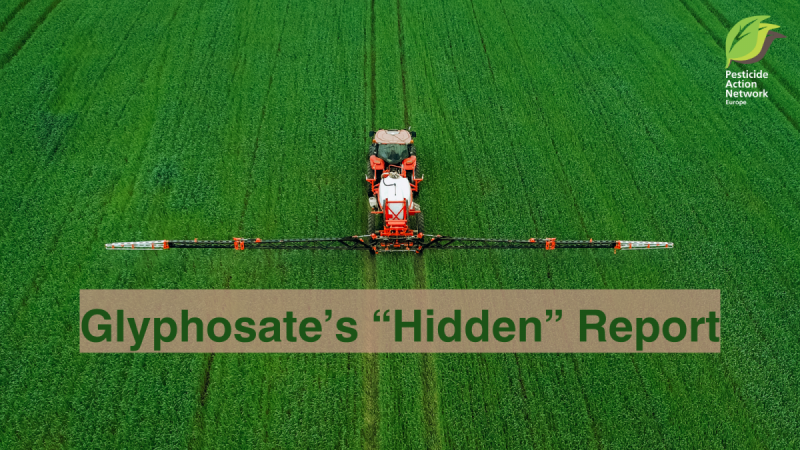This week a ‘hidden’ report by the French Agency for Food, Environmental and Occupational Health & Safety (ANSES) was finally revealed. This report from 2016 sheds light on the genotoxic risk of glyphosate, the most used herbicide in the world. It was published after the newspaper Le Monde started a court case. In an attempt to minimise the importance, ANSES claims that the report is no longer relevant. They claim that in the meantime, EU institutions have evaluated glyphosate. However, as the report highlights, an important genotoxicity test is missing. This test did not take place since, making this hidden report worrying and problematic. This is especially the case because part of the experts in the report express a real warning of a genotoxic effect induced by glyphosate formulations.
ANSES finally published its report on the genotoxicity of glyphosate-based formulations a day before the hearing in court in a case started by Le Monde. They justified that the report was not published stating that the issue of assessing the genotoxicity of glyphosate-based products has been addressed and resolved at the European level. This is only partly true; concerns regarding the genotoxicity potential of the most widely used herbicide and its formulations in Europe remain unresolved, which is troubling given the significant health implications involved.
Our member, Générations Futures, condemns this late publication. They call for the new genotoxicity tests on glyphosate-based herbicides prescribed by this hidden ANSES report to be carried out. Pending the results, the European authorisation of glyphosate should be suspended. The shortcomings in the genotoxicity assessment of glyphosate, including two missing in vivo studies, are important arguments in the Great Glyphosate Court Case launched by PAN Europe and five of its members in January this year.
Tests to assess the genotoxicity of glyphosate were not carried out
In order to assess the genotoxicity of glyphosate-based formulations safely and reliably, the experts recommended carrying out a battery of tests, including 2 in vitro tests and a so-called “comet test”, which is in vivo (living animals). Based on scientific literature the experts think that combining the comet test on glyphosate-based formulations with the two in vitro tests, the genotoxic and mutagenic potential of the products could be ruled out if no effect are shown.
According to the European methodology, only 2 in vitro tests are required. The in vivo comet test, which is more relevant as it examines the genotoxic potential of glyphosate at a whole organism level, was therefore never carried out. This means that glyphosate-based products have been authorised since 2017 without the comet test or any other in vivo test having been carried out. Last November the EU approval of glyphosate was renewed for 10 years, without a Comet test assay performed on either glyphosate active substance or the representative formulation.
Assessments of glyphosate-based herbicides do not currently comply with the recommendations that ANSES experts provide in this report. This means that the non-publication has allowed a less demanding assessment of the genotoxicity of glyphosate-based formulations.
Real warning of genotoxic effects of glyphosate formulations
The ANSES report shows that the experts on the panel have serious doubts about the genotoxicity of glyphosate-based pesticide products. The tests required and carried out cannot rule out the risk of genotoxicity from these products. On the contrary, the divergent opinion of an expert presented in Appendix 7 stating that “a body of convincing results represents a real warning of a genotoxic effect induced by different formulations.”
François Veillerette, spokesperson for Générations Futures declared that: “Générations Futures protests against the very late publication of this document, which has allowed a cut-price assessment of the genotoxicity of glyphosate-based products to be carried out in Europe until now. We call on the French government, the European Commission and the EFSA to take immediate account of the main recommendations in this report, particularly concerning genotoxicity testing, to review as a matter of urgency the re-authorisation that has just been granted to glyphosate for 10 years, which must be suspended pending the results of these new tests.”
Read further:
- Press Release by Generations Futures: Glyphosate : Révélations sur un rapport officiel caché de l’ANSES et qui éclaire le risque génotoxique de cet herbicide
- Report by ANSES: Publication by Anses of the unfinalised work of the emergency group on glyphosate in 2016
- Article by Le Monde: Un rapport fantôme sur le glyphosate sort des placards de l’Anses, huit ans plus tard
